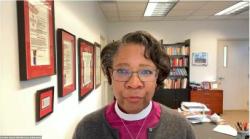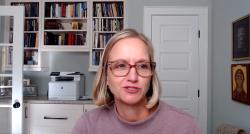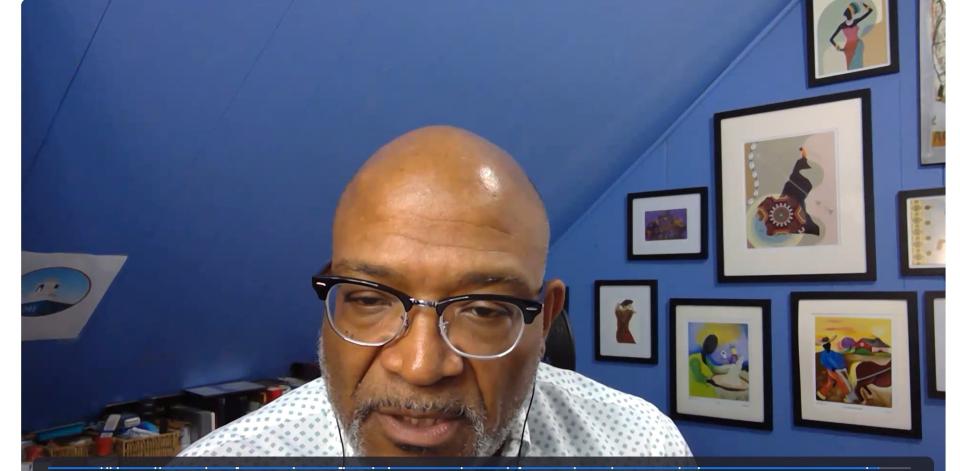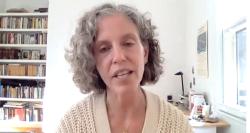Using Land to Proclaim the Gospel

Seventeen parishes and other church groups attended Trinity Church Wall Street’s recent “Gift of Place” conference, more than three times as many as participated in the initial conference in 2020.
In partnership with The CEEP Network, Trinity sponsored the gathering to encourage parishes to share ideas on how to develop real estate to generate the income needed to support church ministry.
“We encourage churches to view their land and property as their endowment and think about how they utilize that asset in planning for a development project that aligns with the missional needs of their neighborhood,” said the Rev. James Clark, Mission Real Estate Development.
The MRED initiative at Trinity borrows from techniques used for many years with Trinity parish partners in Africa, including peer-mentoring and a foundation in scripture. Each of the two sessions began with a scripture reflection led by Episcopal Church bishops, the Rt. Rev. Jennifer Baskerville-Burrows and the Rt. Rev. Mary Gray-Reeves.
Members of what is called “Gift of Place Cohort #2” received advice from some parishes that already operate income generating projects, which can include affordable housing, day care centers, and even coffee shops. Most of the others in attendance have begun planning a development project utilizing church-owned land and/or buildings.
The two-day online conference featured both workshops and small group conversations in which churches were divided according to their context: urban, suburban, and rural. All Saints Episcopal Church in Atlanta, a large urban parish, is in the midst of a program of renewal and investment called “Future of Our Block.” Members of St. Paul’s Church in rural King George, Virginia, discussed a five-year program called SPC 2100, a plan focusing not on present-day members, their children, or even their grandchildren, but rather their great-grandchildren.
“It’s about the Church of the future at St. Paul’s,” according to the parish’s rector, the Rev. Padre Lee Gandiya.
Perhaps most unconventional is the experience of Kinetic Christian Center in Brooklyn, which has built community and fellowship without, so far, even owning a building.
The Rev. Dr. Patrick Duggan, is a Long Island pastor and executive director of the United Church of Christ Church Building Loan Fund. Dr. Duggan emphasized coordinating a development project with the mission of the church.
“It’s not a big jump to find the missional value of affordable housing,” he said, adding that churches, due to long histories, are among the last entities who still have relatively easy access to land and buildings.
The work is to build a church, not a building. What is our mission that we’re called to in the future? Forming that vision is the part that really brought the congregation together. You just have to have the patience to let the Holy Spirit work.
–Barbara Wilson of St. Luke’s Episcopal Church, Seattle
A common theme among the participants was the effect of the pandemic on their plans to develop an income generating project. For some, the last two years have also prompted a look at parish history, and how sometimes the acquisition of the land being considered for development was, in the words of the Rev. Sarah Ball-Damberg of The Episcopal Diocese of North Carolina, “enmeshed with a history of white supremacy." Parishes and dioceses must be willing to address their past and enter into uncomfortable conversations, including discussion of possible reparations, she said, in order to answer the question: "How does this piece of land proclaim the Gospel?"
During the workshop on financing a project, Theresa Cassano, Senior Loan Officer at Enterprise Community Loan Fund, Inc. in Denver, encouraged participants by reminding them that their congregations “are pillar stones of communities.” However, she cautioned patience because such projects often take years to bring to fruition.
Barbara Wilson of St. Luke’s Episcopal Church in the Ballard neighborhood of Seattle, offered reassurance that, despite the length of time required, it can be done.
Wilson, who participated in the 2020 cohort of Gift of Place, shared the experience of her fellow parishioners in reaching consensus about their project. “The work is to build a church, not a building. What is our mission that we’re called to in the future? Forming that vision is the part that really brought the congregation together.
“You just have to have the patience to let the Holy Spirit work.”
Lori Reinking of All Saints Episcopal Church in Atlanta encouraged participants to think of that longer timeline as an advantage.
“We don’t have to please shareholders. We have “church time” on our side.”
Or, as Reinking’s fellow parishioner at All Saints, Tread Davis, put it: “As we think of Kairos and Chronos, we’re looking at a long runway here.”
Many of the parishes that participated in the “Gift of Place” conference hope to gather again at The CEEP Network’s annual conference in Atlanta in late February. Trinity Church Wall Street has committed to assisting members of Cohort #2 with ongoing strategic advisory support, grants for feasibility studies and pre-development costs, and through the Mission Property Empowerment Loan Program, a partnership with Nonprofit Finance Fund.









